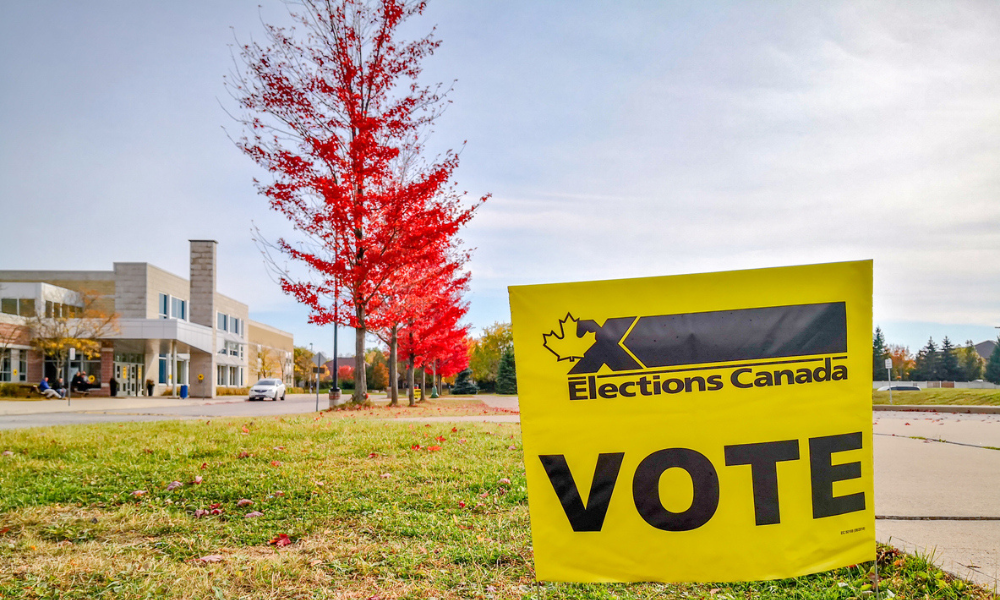Trend likely to intensify for election year

Canadian entities doing M&A south of the border will continue to contend with aggressive antitrust enforcement in 2024, says Valerie Stevens, an M&A lawyer and head of the trade regulation and antitrust practice at Hodgson Russ LLP.
Several high-profile antitrust court cases against tech giants will conclude in 2024. And an upcoming regulatory update and new merger guidelines will embody a stricter approach from Washington on potentially anticompetitive transactions, especially in the technology, healthcare, and private equity fields.
In the US, 2024 is an election year, and during President Joe Biden’s term in office, Stevens says federal agencies have been “highly attuned” to enforcement, particularly in M&A. They have “pressed the bounds of legal precedent” and sometimes challenged transactions on “novel theories of antitrust injury.”
Most Read
“Everyone is expecting that will continue as we head into an election year,” she says. “Particularly because the Biden administration has been very strong in their rhetoric on antitrust enforcement and on the importance of making sure that antitrust laws are enforced with respect to the largest market players in the country.”
“That enforcement environment is going to affect anyone who is trying to invest in the US.”
Several landmark antitrust cases are expected to conclude in 2024. In one, the justice department accuses Google of monopolizing digital advertising technologies via “serial acquisitions and anticompetitive auction manipulation.” In another case, the Federal Trade Commission (FTC) and 46 states argue Facebook built a social networking monopoly through its anticompetitive acquisitions, including of competitors Instagram and WhatsApp, in 2012 and 2014. The FTC asks the court to force Facebook to divest from those two companies.
“Those decisions are expected hopefully in 2024, and I think they could be very significant in terms of understanding the direction that things will go,” says Stevens, managing partner of Hodgson Russ’ New York City office.
Facebook’s current legal battle comes after 48 US states were unsuccessful in their antitrust challenge of Facebook parent company Meta for the WhatsApp and Instagram transactions, and the FTC lost its bid to prevent Meta from acquiring the virtual reality startup Within.
On Dec. 18, the FTC and the Department of Justice (DOJ) jointly released the 2023 Merger Guidelines, which provide market players with the factors and frameworks agencies will use to assess proposed deals.
“Those guidelines were released to a lot of fanfare,” says Stevens. The agencies will be working hard to implement the guidelines and achieve a few wins in court to demonstrate acceptance of some of the theories they have outlined. But she says some have criticized the guidelines for citing “very old cases” in support without much new precedent.
“The agencies are going to be looking for early wins on those guidelines for sure. They've shown a willingness to bring challenges on difficult cases for mergers, partly because an aggressive enforcement environment means that there are transactions that would be done but are not being done because of the deterrent effect.”
“The agencies view that as a net positive result of an aggressive enforcement posture, even when that enforcement is unsuccessful. So, I would expect to see aggressive use of those guidelines.”
Stevens says this will result in regulators attempting to settle and allow parties to move a transaction forward with negotiated remedies, as well as “more difficult cases” where they will argue in court that the transactions are unlawful according to the guidelines’ correct statement of the law.
She says that one element of the guidelines that have not been part of the “traditional antitrust analysis of a merger” are new views on labour market effects. While parties previously would have looked at a transaction’s impact on consumers – pricing and market share – the guidelines indicate regulators will also look at the impact a transaction could have on wages in affected markets.
“Not only are there going to be more challenges, but I think it's going to be a more nuanced process for parties to prepare for those challenges and to defend against those challenges.”
Stevens says technology, healthcare, and private equity are the sectors in the regulatory spotlight.
The Merger Guidelines included “focused commentary” on the potential antitrust injury that could result from roll-up strategies, where private equity investors acquire and merge multiple smaller companies from the same industry. While US federal regulatory agencies have typically accepted the strategy in the past, it has begun to attract attention in recent years, as has the healthcare industry, which she says has been under “extreme scrutiny” in the last two years.
Last February, the DOJ withdrew three antitrust enforcement policy statements the agency called outdated in a rapidly shifting healthcare landscape. Since then, Stevens says insurers and healthcare providers have had difficulty navigating the “rules of the road” on previously acceptable collaborations. She expects that uncertainty to continue.
2024 will also see the introduction of new regulations under the Hart-Scott-Rodino (HSR) merger notification thresholds or frameworks, under which the FTC and DOJ must be notified about transactions above a certain level. If the HSR form is like what the agencies proposed during the comment period, it will be a “substantially more involved process” than it has been in the past, says Stevens.
“The Federal Trade Commission estimated that it will take parties at least six times as long to prepare the new HSR form as it did to prepare the old HSR form.”
She says the HSR revisions will also require parties to include arguments and explanations for the transaction’s competitive impact in their merger notification. This is inconsistent with the traditional process in which parties were required to disclose “the definitive agreement and some very basic mechanical information about the transaction.
“2024 is going to be a sea change for HSR practice and merger notification practice, and parties have got to be prepared and build that into their deal timelines.”










